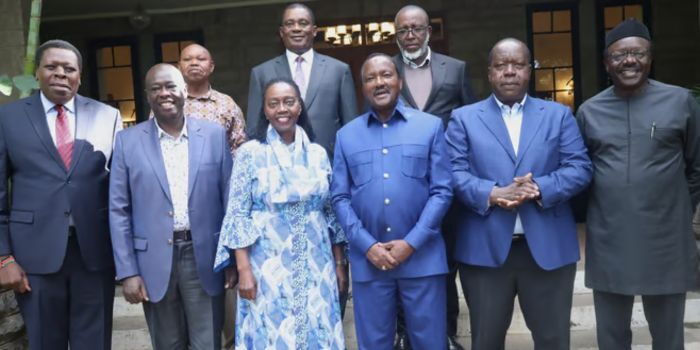Ongoing Discussions on Constituency Projects

Constituency projects, originally envisioned as vital avenues for lawmakers to connect with and serve their constituents, are statutorily embedded within the National Assembly's budget due to their perceived importance. However, over the years, these projects have become synonymous with controversy, inefficiency, and pervasive corruption, yielding minimal tangible impact on communities. Conceived as developmental tools to channel federal funds to specific geopolitical spaces, the underlying idea was that federal lawmakers, being representatives of particular areas, would possess the best understanding of their constituents' needs, thereby enabling them to design projects that accurately meet local priorities. A more pragmatic, self-preserving motivation also existed: in a political landscape where elected officials are often judged by physical projects, regardless of their executive or legislative roles, these initiatives provide lawmakers with visible evidence of effective representation crucial for re-election campaigns.
Regrettably, much like many public funding mechanisms lacking stringent regulation, constituency projects have fallen prey to extensive abuses. Various investigative reports, including a recent exposé by Agora Policy, a respected Nigerian think tank, have meticulously detailed the systemic flaws inherent in the constitutional and institutional frameworks governing these projects. With constituency projects now accounting for a staggering ₦6.93 trillion, or 2.6 percent of Nigeria's ₦54.99 trillion federal budget for 2025, there is an urgent imperative to critically re-evaluate this concept. This assessment is essential to prevent lawmakers and their collaborators from continuing to exploit these projects as vast conduits for fleecing the national treasury on an immense scale.
In Nigeria's presidential system, the executive arm is constitutionally mandated to initiate and implement the budget once appropriated, while the legislature's role is to review, approve, and oversee project implementation to ensure adherence to approved plans. This arrangement exemplifies the principle of separation of powers and checks and balances, foundational tenets of democratic and federal systems. Unfortunately, these principles are frequently disregarded. Legislators routinely usurp the executive's role by inserting their preferred projects directly into the federal budget and subsequently influencing their implementation, often through proxies and relatives. The consequences of this legislative overreach have been dire, leading to a proliferation of projects in the federal budget—such as streetlights, boreholes, and even renovations of traditional rulers' palaces worth billions of naira—that should rightfully fall under the purview of local councils or state authorities.
For instance, the 2025 budget conspicuously lists 1,477 streetlight projects valued at ₦393.29 billion and 538 borehole projects worth ₦114.53 billion. Many of these initiatives suffer from a complete absence of proper planning or sustainable maintenance strategies. Consequently, a significant number of these projects are never undertaken, while those that commence often remain incomplete, thereby exacerbating the country's ignominious
You may also like...
Diddy's Legal Troubles & Racketeering Trial

Music mogul Sean 'Diddy' Combs was acquitted of sex trafficking and racketeering charges but convicted on transportation...
Thomas Partey Faces Rape & Sexual Assault Charges

Former Arsenal midfielder Thomas Partey has been formally charged with multiple counts of rape and sexual assault by UK ...
Nigeria Universities Changes Admission Policies

JAMB has clarified its admission policies, rectifying a student's status, reiterating the necessity of its Central Admis...
Ghana's Economic Reforms & Gold Sector Initiatives

Ghana is undertaking a comprehensive economic overhaul with President John Dramani Mahama's 24-Hour Economy and Accelera...
WAFCON 2024 African Women's Football Tournament

The 2024 Women's Africa Cup of Nations opened with thrilling matches, seeing Nigeria's Super Falcons secure a dominant 3...
Emergence & Dynamics of Nigeria's ADC Coalition

A new opposition coalition, led by the African Democratic Congress (ADC), is emerging to challenge President Bola Ahmed ...
Demise of Olubadan of Ibadanland
Oba Owolabi Olakulehin, the 43rd Olubadan of Ibadanland, has died at 90, concluding a life of distinguished service in t...
Death of Nigerian Goalkeeping Legend Peter Rufai

Nigerian football mourns the death of legendary Super Eagles goalkeeper Peter Rufai, who passed away at 61. Known as 'Do...
Recommended Articles
Response to Sola Abegunde's Obsession with Governor Makinde

Sola Abegunde strongly refutes Gbenga Akanni's defense of Governor Makinde, criticizing the administration's unfulfilled...
NNPC Alleges Coordinated Sabotage Campaign

The Nigerian National Petroleum Company Limited (NNPC) has uncovered a coordinated sabotage campaign by internal and ext...
Frank Adu Jnr Warns Mahama on Appointee Accountability

Former Cal Bank CEO, Frank Adu Jnr, has strongly advised President John Mahama to prioritize accountability among politi...
Kenya's Gen Z Protests & Government Response

Kenyans, primarily Gen Z, held nationwide protests on June 25 to mark the anniversary of last year's anti-Finance Bill d...
Widespread Condemnation and Calls for Action on Police Brutality in Kenya

Widespread condemnation has erupted across Kenya and internationally following alleged police brutality during recent pr...